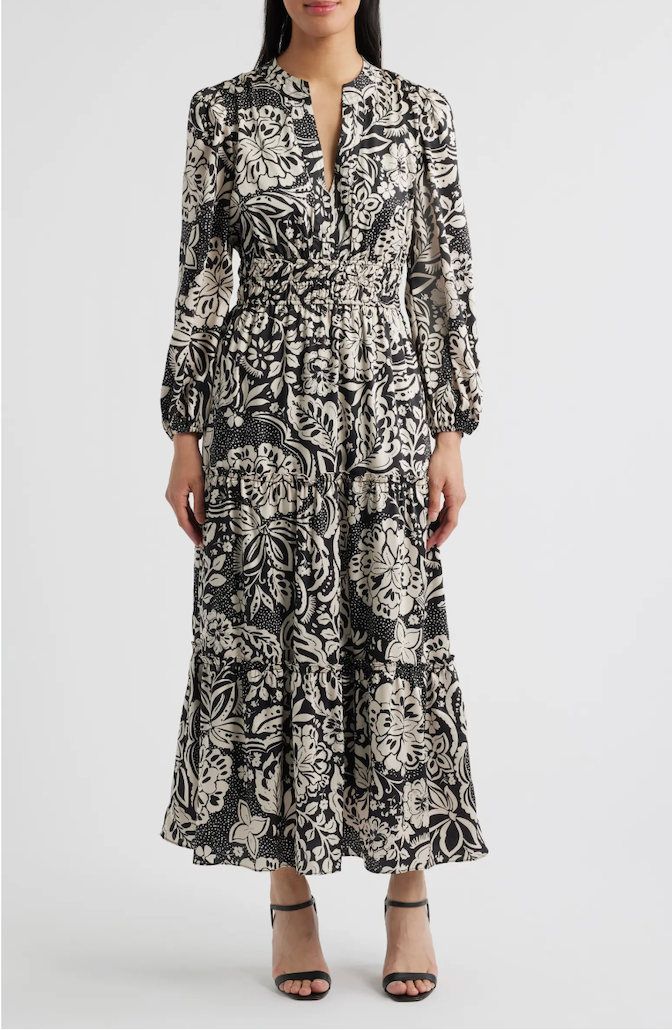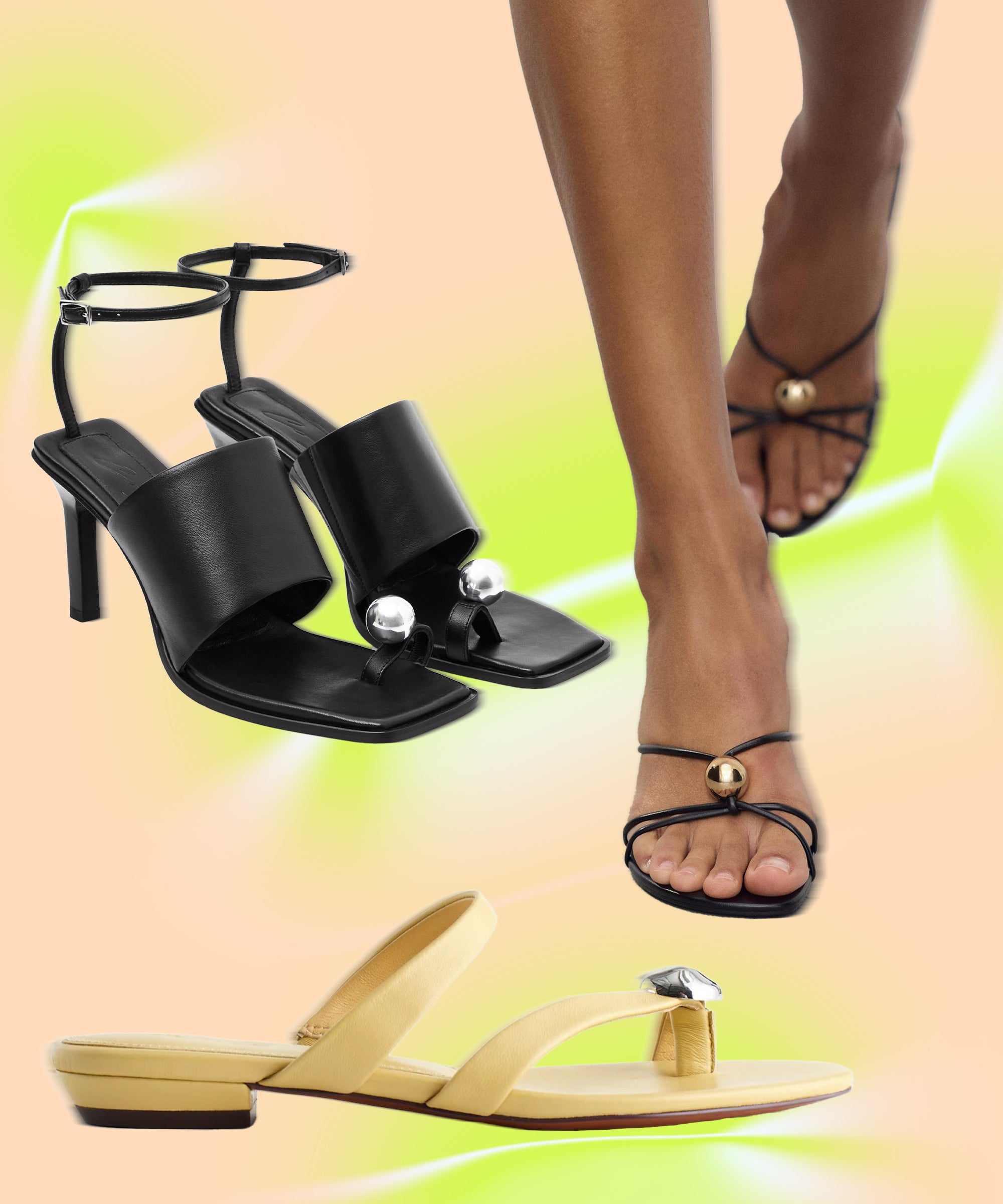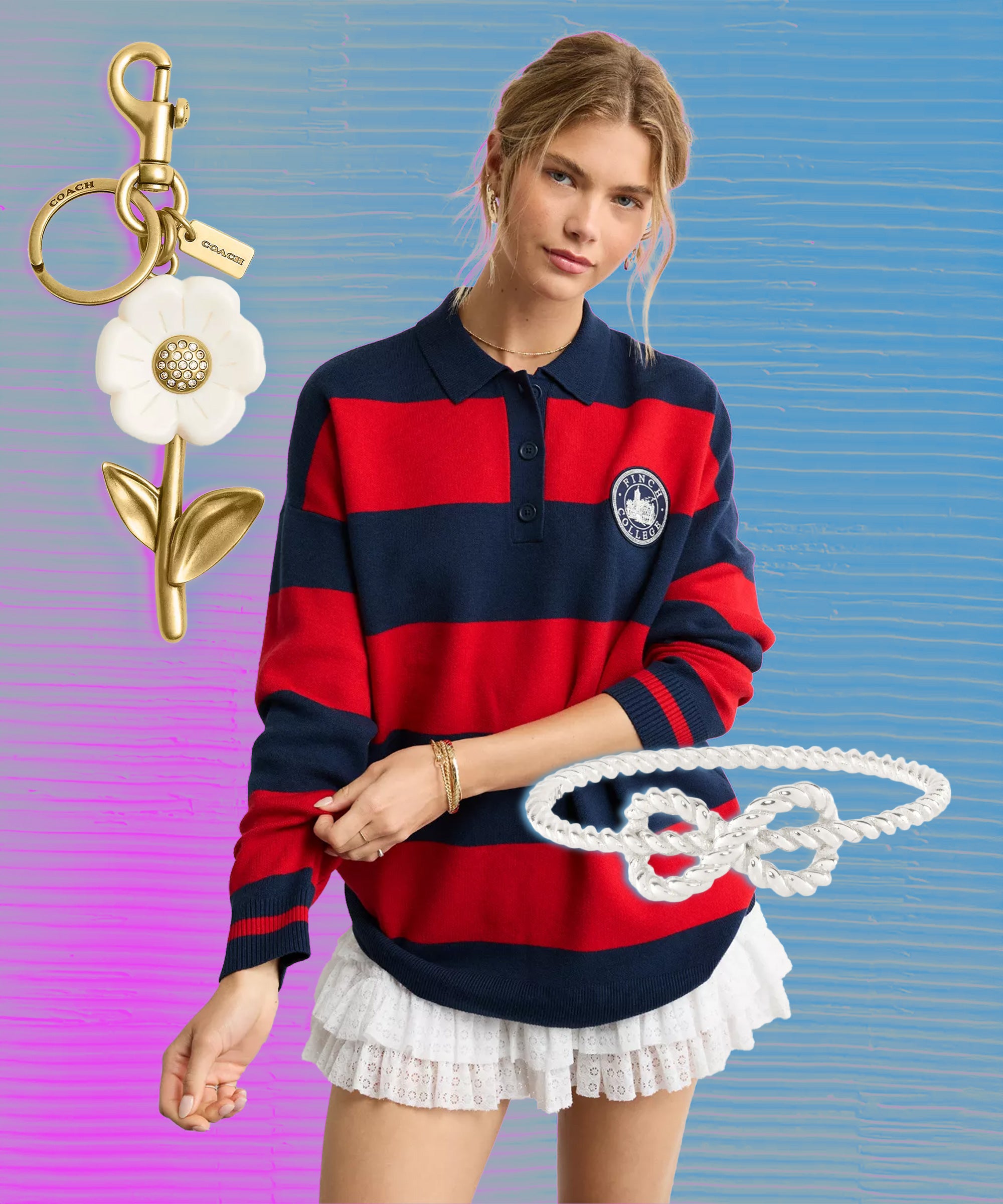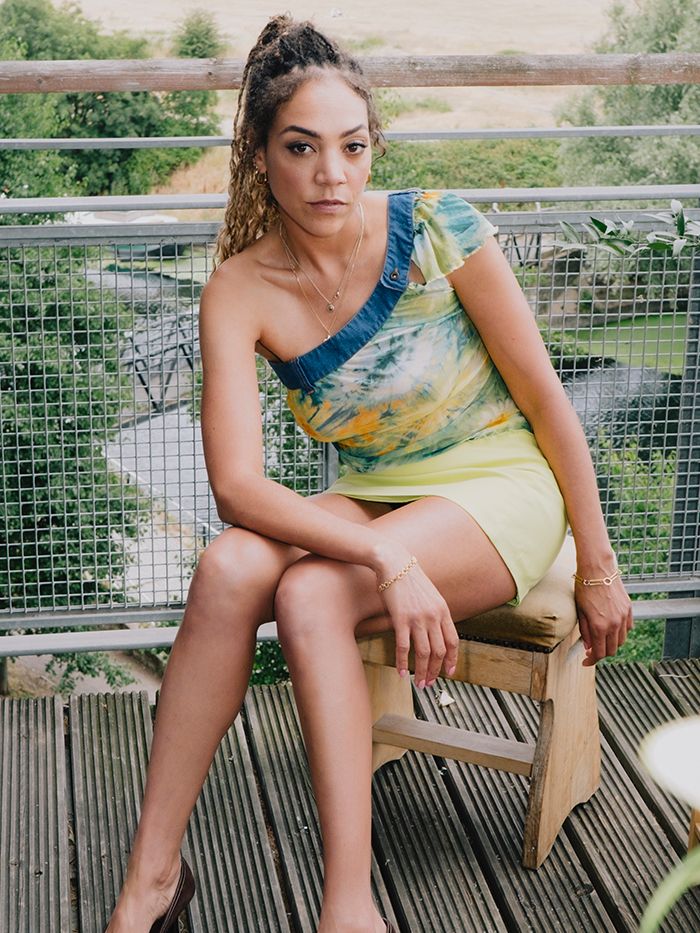
Welcome to the latest, highly exciting instalment of Who What Wear UK’sBest Wardrobes in Britain. It’s where we do exactly what it says on the tin: delve into the most fantastical, awe-inspiring and downright influential wardrobes. We’re honing in on the people who cause the street style photographers to press their shutters as well as the characters you don’t yet know—the ones who fly under the radar with secretly incredible clothing collections.
It is almost impossible to have watched TV in the last 20 years and not be familiar with the effervescent Miquita Oliver. From her early beginnings hosting the cultural phenomenon that was Popworld to her more recent gigs on Sunday Brunch and The Sunday Times Culture Show, Oliver has been a familiar fixture on the small screen for an entire generation and at the forefront of the London style circuit too.
As the majority of us clumsily navigated the fashion of the early noughties, Oliver’s friendship group (Lily Allen, Alexa Chung, Pixie Geldof, Henry Holland, et al.) managed to set the tone for what would become the look of the time and in the process convinced us that we could pull off micro miniskirts, slip dresses and ballet pumps with the same aplomb. But more recently, it’s her passion for giving old clothes new life that has caught our attention, and as the second-hand clothes ambassador for Oxfam, she has inspired us to change the way we shop and start the hunt for hidden gems in our high-street charity shops too.
Who better to allow us a peek into their wardrobe than Oliver, who boasts a treasure trove of preloved pieces, nostalgic throwbacks and plenty of vibrant print and colour. If clothes could talk… Well, in Oliver’s case, they do, and their message is a powerful one of reinvention, resilience and staying true to your roots. Keep scrolling to learn more about Oliver’s iconic style and her best shopping tips, and see the pictures from our exclusive shoot.
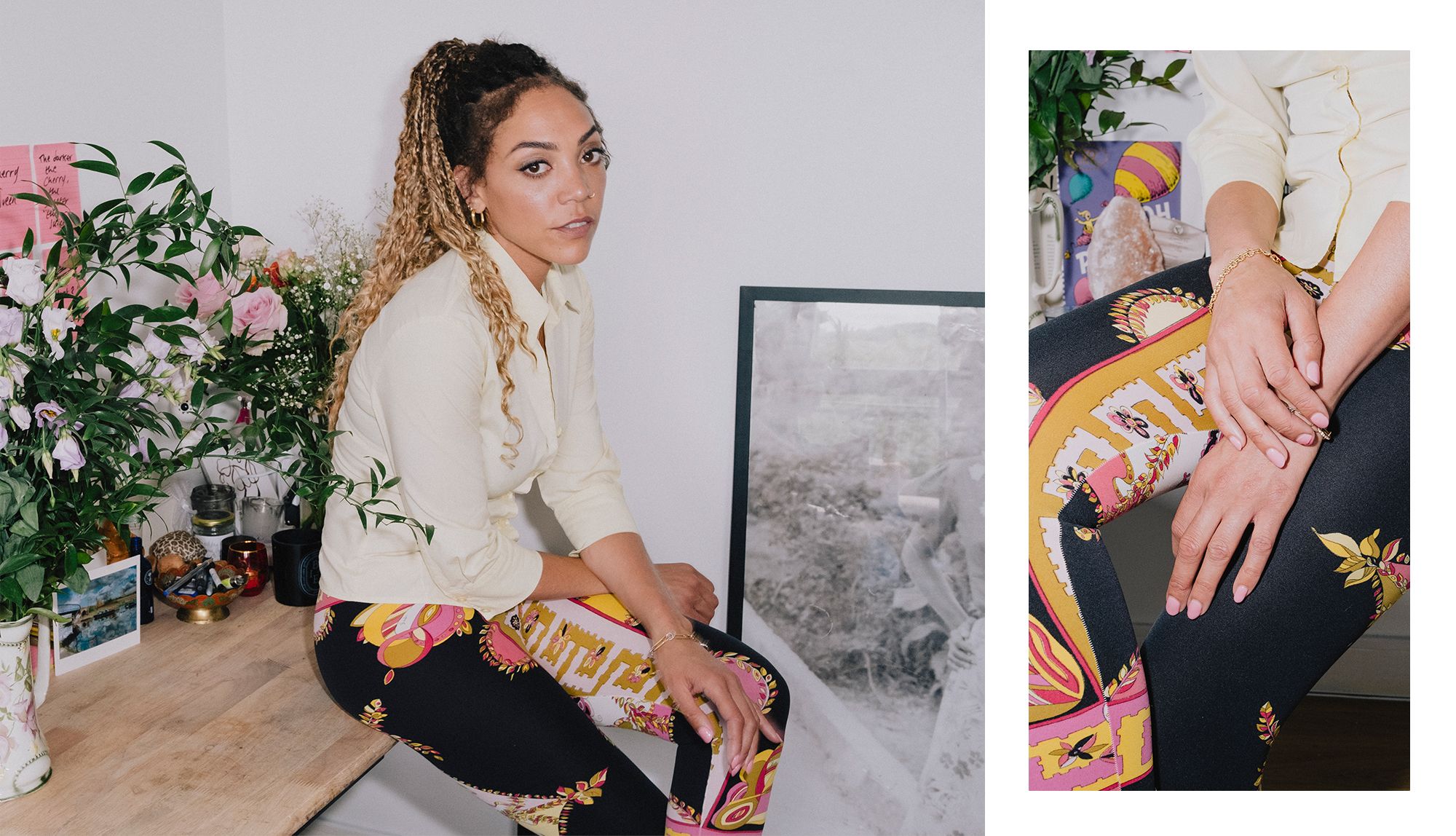
Were you always interested in fashion when you were younger?
Probably from when I was about 3! My mum said that I just like dressing myself, and I basically dressed then like I do now. I saw a picture the other day and thought, “I’m so dressed in charity-shop clothes!” So it runs deep for me; it really does. And I’ve always been shown from a young age that clothes are powerful by my grandma and her generation but also my auntie Neneh [Cherry] and my mum—all of that scene and that crowd of punk and reggae in the ’80s and ’90s in West London when I was growing up. People were so expressive through their style and what they wore and didn’t have any money. So it was always about style and not about fashion. My family were part of really beautiful fashion moments like Buffalo and Neneh having just her whole iconic aesthetic. All that stuff, I soaked it in. I listened, and I studied without knowing I was.
I grew up in Ladbroke Grove, which was at the time a real melting pot of culture and music and fashion and art and film. It all really merged there with carnival and things like that. But it was also living in a place where there was real affluence next door to real poverty. We didn’t have any money, but we lived in a nice house because it was a housing trust, so having that kind of confusion about where you lie makes you look at each side a lot. I was always really interested in what people did with their clothes with money and what people did with their clothes with no money, and I always preferred what people did with nothing. I still like market clothes, and I like the way people in the market look, and the people in the pubs, and of course at carnival. I’ve always liked the way people dress, not necessarily the way fashion icons dress.
You seem to like have a very emotional relationship with clothes. Where does that come from?
Well, as we didn’t have a lot of money when I was growing up, my mum, of course, shopped in charity shops, and also my nan’s always shopped in charity shops. But that’s because she comes from a family of makers. My great-grandmother, mama, made all of her, my grandma’s, and all her brothers’ and sisters’ clothes. So I think when you come from that generation of makers, you are more aware and in tune to the cut and the shape of clothes, which means that when you go second-hand shopping, you’re not looking for fashion; you’re looking for a good fit on the shoulder, you’re looking for darting or a sharp cut on the hem. Detail. And I think when you think like that, you can find a lot more out there in the world with clothes, and I think that’s what I’ve always used clothes to do. I’ve always used clothes for my power, to express myself, to say what I feel, to heal myself, to use until I get over people and to heal heartbreak for sure. I used them to galvanize my career again, and I use them to pretty much speak for me sometimes.
And I think it’s really important to remember that all memories are stored in our wardrobes—they really are. I went to clear out a storage space with my mum the other day, and it was clothes from the last 10 to 15 years. We are both in a very “next chapter” phase of our lives, but going there and shutting it down and going through our life, even a dress can just spark up so much. I feel like we don’t remember that all of our stories and memories are in our clothes, but wearing them is how we unlock them.
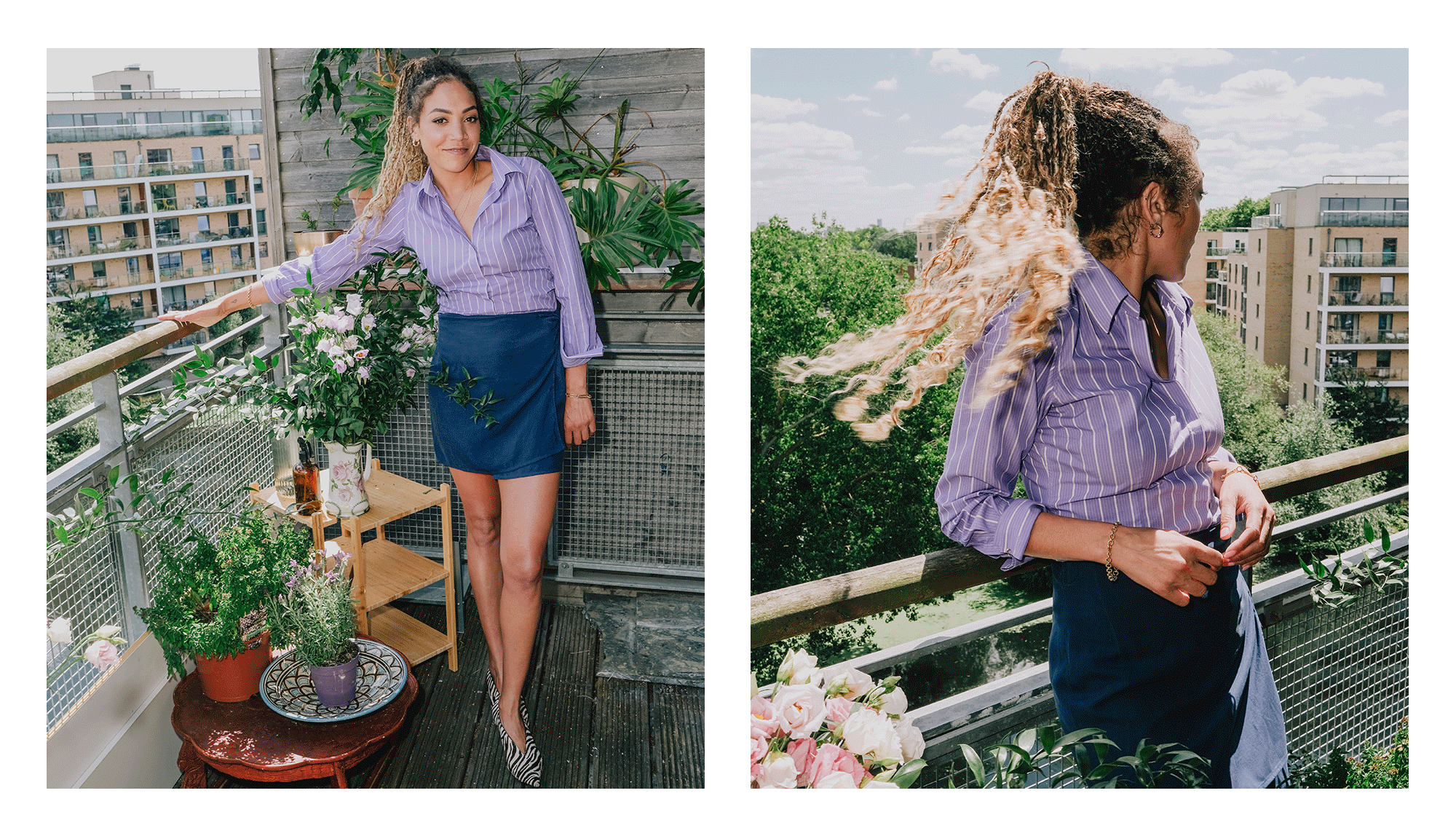
You said you use clothes for your power. How do your clothes do that?
I would never wear colour before, because I hadn’t had therapy yet, basically. So I wasn’t in touch with what colour meant to me. The more I opened up in my life and grew, and grew into my power, I discovered that I could wear clothes with that deeper knowledge of myself and use how I dress to say who I am and where I’m from. I come from a woman named Andi Oliver, who came from a woman named Maria Oliver, who comes from Antigua, where colour was very, very important to them. It reminded them of home. When they came here, they would wear colour to remind them of home. I don’t think that it’s a coincidence that now I’m wearing colours that my aunties and my grandma always wore—the oranges and pinks, greens and turquoise. Four years ago, I was like, “Should I stray from navy?” and now you can’t stop me—I’m like hot pink! Teal!
Do you feel like the way you dress connects you more with your Antiguan heritage?
Yes, the more I learn about where I’m from and who those people were and what they did, but truly who they were and not just a photograph. I’ve asked, I’ve looked into it and want to know their stories, and it’s changed the way I dress. It’s made me feel in tune to them in a different way. And I feel that reflected in the clothes I wear—I feel proud of them and proud of myself and the life that I’ve made because of the things they did and the lives they had. And I just think they’re really interesting, fantastic people, and I want to know more about them. And they could all seriously dress! My grandma’s brothers and my uncles were turned out, and they were sharp, sharp men. I feel like when I’m looking for a dart in a suit, it’s not just me. My uncle Shawn, my mum’s brother who passed away in his 20s, he knew how to wear a suit. He’d get them in charity shops and then wear them with bust-up old Adidas, but he just knew how to wear a suit. So when I’m looking for things, I think I’m sort of also looking for him and other people in my family to fill me up and feel like they’re in me and around me. I think clothes are a really emotional thing. And I think we all know that really? We think we just put clothes on, but there’s always a reason that you wear something when you really love something. And if you look a bit into it, it’s usually about who you are and where you’re from.
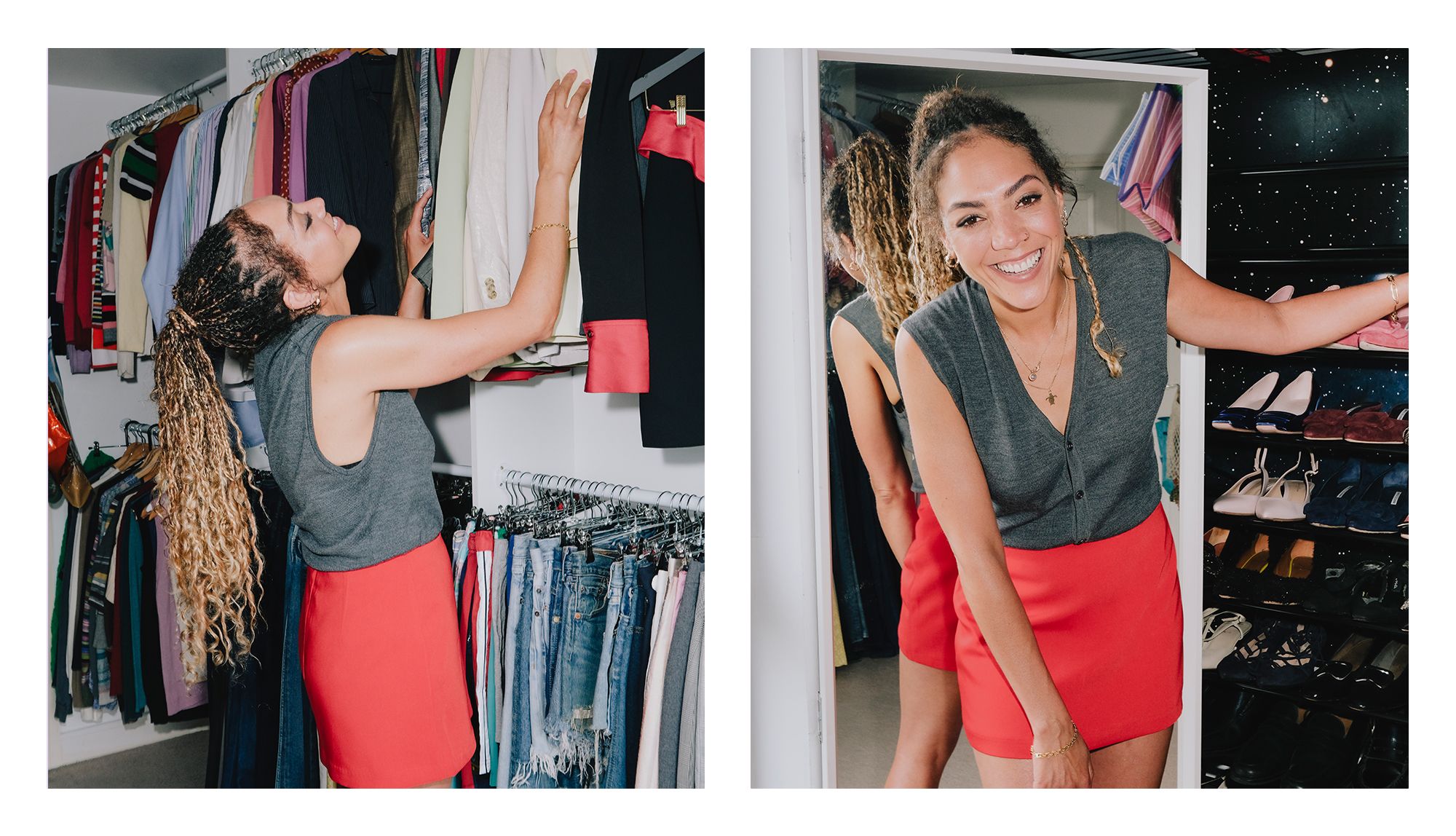
In Antigua, you said it’s all about the tailoring, fits and colour. Is there anything else that particularly resonates with you?
Yeah, shapes and cuts are really important to me. I could happily wear just a pair of navy leggings and a kitten heel and a jumper. But the shape has to be right—the jumper has to be small with the arms at this length. I just think about the dimensions of things a lot. The difference between wearing a jacket and then pulling up the sleeves. I just like the details. And I realised quickly just how much they can change something.
So you’re quite particular about your wardrobe?
Yes, I’m always very anal, mad-organised. I remember my friend said to me the other day, “You know, you’ve had a brilliant wardrobe with every flat you’ve ever had.” And I said, “What? Even in my 20s when I was mental, and my house was like ‘argh!’?” She was like, “Yeah, I remember the whole house was chaos, but you had a brilliant wardrobe.” I’ve had this wardrobe like 10 times in different places. Even when I lost everything, and I was back at my mum’s, in the back bedroom at my parents, I got a rail, and I hung everything up. I only had like 30 things, but I hung them up. I think it’s how I keep myself in check and exercise my control freak. Seeing your clothes all organised helps you figure out who you’re going to be and what you’re going to feel for things. It’s basically a playroom for me.
How would you describe your style now?
I think classic, powerful, and I try to look elegant. I try to look elegant even in tracksuit bottoms. It’s weird; I think going back to my grandma, it’s about how you hold yourself. But I do like to look chic. And I feel like a leg out and a kitten will always get me there. So yeah, I guess elegant, chic, powerful and open.
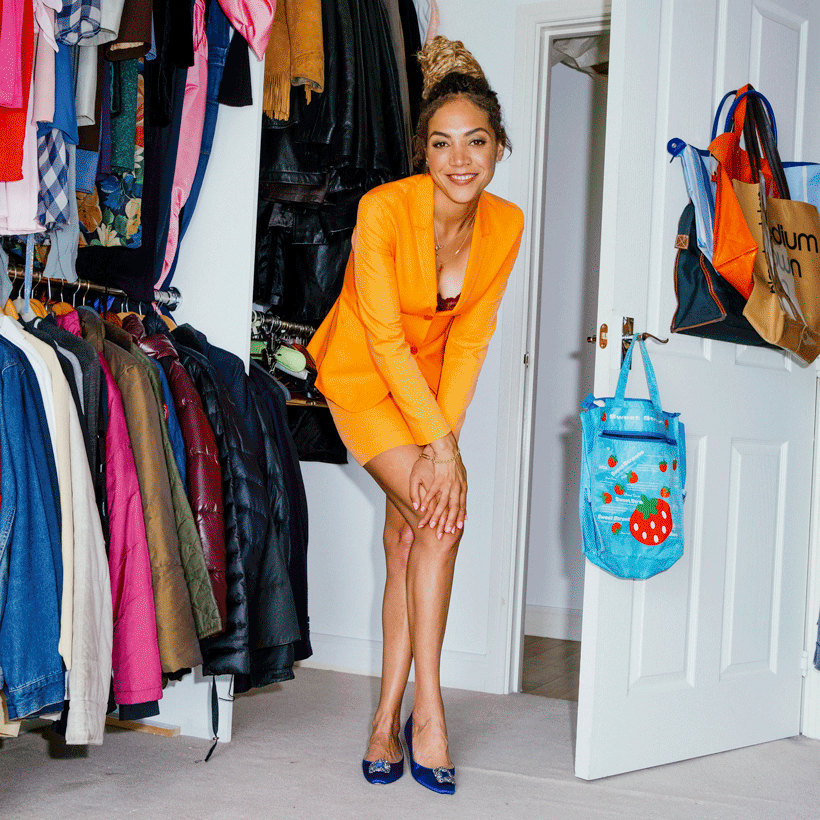
What do you like buying on repeat?
I love miniskirts. I love skirts! I don’t feel like enough people wear skirts. Dresses get all the hype, but I love a skirt, but that’s also because of my grandma. I love pairing separates like jackets and skirts, and I like clothes, but I don’t particularly love fashion. I like making it what it means to me. I trawl fashion magazines and take references from all of the beautiful shows that I get invited to, and I find it really fun getting to see stuff early and the planning or making of clothes. I’m interested in what the guy in front of me on the Overground is wearing. I’m interested in clothes and what we put on our bodies and why, even if people don’t think it’s emotional, it just is.
You alter a lot of your clothes with Make Nu. How does that work?
Firstly, I think it’s really important for people to remember that a lot of dry cleaners are tailors too, especially the old-school ones, and my dry cleaner is amazing. I get her to shorten all my skirts and stuff, and it’s really beautiful to have that exchange with her where she’d be like, “What skirts you’ve got for me this week?” But with Make Nu, it’s something quite different, as you can completely transform an item into something else. I got this long, purple, long-sleeved Marks and Spencer dress that everyone told me to get rid of, but I just got them to make it really short and tight, and it turned out stunning. They’re really brilliant at what they do, and it’s a really beautiful experience to have them come to your house and fit you so personally. And then you get a box with your name on it and a bow. It means I shop differently now because I see what things can be and be changed into.
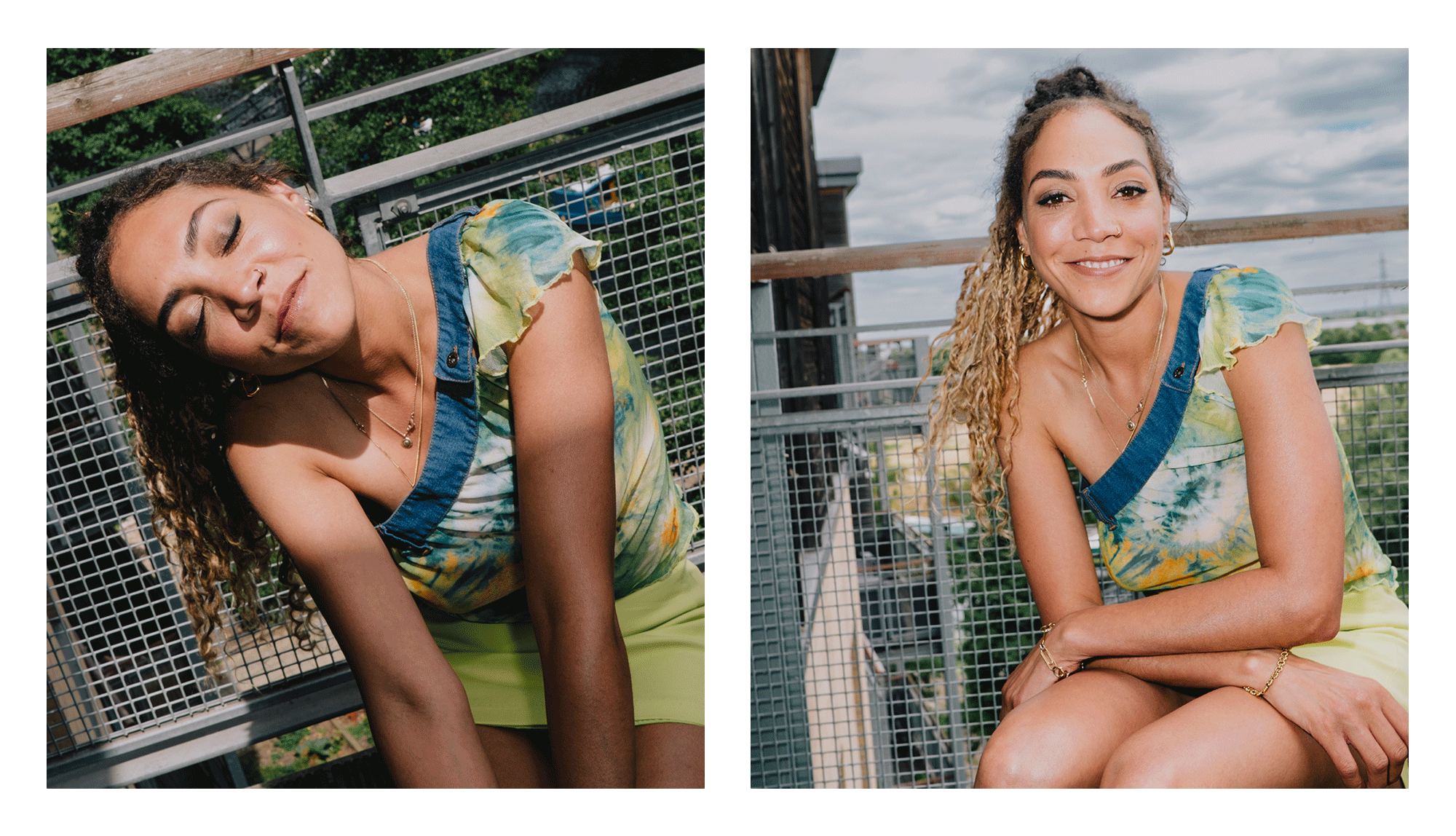
What are your best charity-shop shopping tips?
I think it’s really important when you go shopping for second-hand clothes to listen to your gut and your instincts. Like starting a relationship or meeting someone for the first time, it’s really about trusting what you’re drawn to and what sparks you up inside. And that’s why I love buying second-hand clothes because I’m not being driven by anything that anyone’s told me, and I’m not being driven by the kind of standard tropes of shopping, which is like, “I’m looking for a size 12. I’m looking for something brown. I’m looking for a dress.” I just go out, and I come back with the things that I was drawn to, whether that be a skirt, a jacket, or top or a pair of shoes. And I think that’s really a much more exciting shopping experience. I think if everyone in the world knew that, they’d have a different approach to shopping second-hand. I’m just trying to let people know it’s actually far more exciting. It’s being open to what might find you and the unknown of what you might find.
Which are your favourite charity shops?
There’s a little one in Stoke Newington—the really good ones don’t even really have names! I think it’s like a jumble sale shop, and it’s just fantastic. I found these Paul Smith jeans for two quid, and I always find jeans there. I think it’s a lot of the Jewish men from the area have donated, and their clothes are so great. I love straight-legged men’s jeans, so usually you have to go somewhere where dads and uncles will have donated their jeans, not like trendy teenagers. I want, like, older-people clothes, [as]I think that they always look really classic.
Well Street Charity in Hackney is full of old toys, books, video machines, but then in the back, he has some of the best leather I’ve ever seen and in different colours like camel, chocolate brown, and toffee. All these old leather jackets from the ’90s, like long, straight Calvin Klein– and Donna Karen–looking ones. And this guy does not know what he has. It looks like the Celine stockroom, it’s ridiculous, but he doesn’t realise! So far I’ve got four of my leather jackets from there.
Do you go to different areas for all different items or styles?
For sure. North London I go to a lot in the winter because they have really good cashmere, men’s jumpers and men’s suits. I just go where the aunties and uncles are. Chingford is brilliant! We did this shoot last year actually, like a week before lockdown finished in March, and they let all of the charity shops that we were filming in open early for us to film. And I hadn’t been in a charity shop for like four months, and I was like, “Oh my god!” I really love charity shops in suburbia. They are really good.
Charity shops in the middle of the city don’t have so much because people know too much. They know what it’s worth, and I think a lot of the charity shops in certain places feel like they need to bring in fast fashion to make young people interested, so there’s a lot of ASOS and a lot of H&M. That’s not what I’m looking for. I’m looking for a brand I’ve never seen before like weird Italian labels you’ve never heard of.
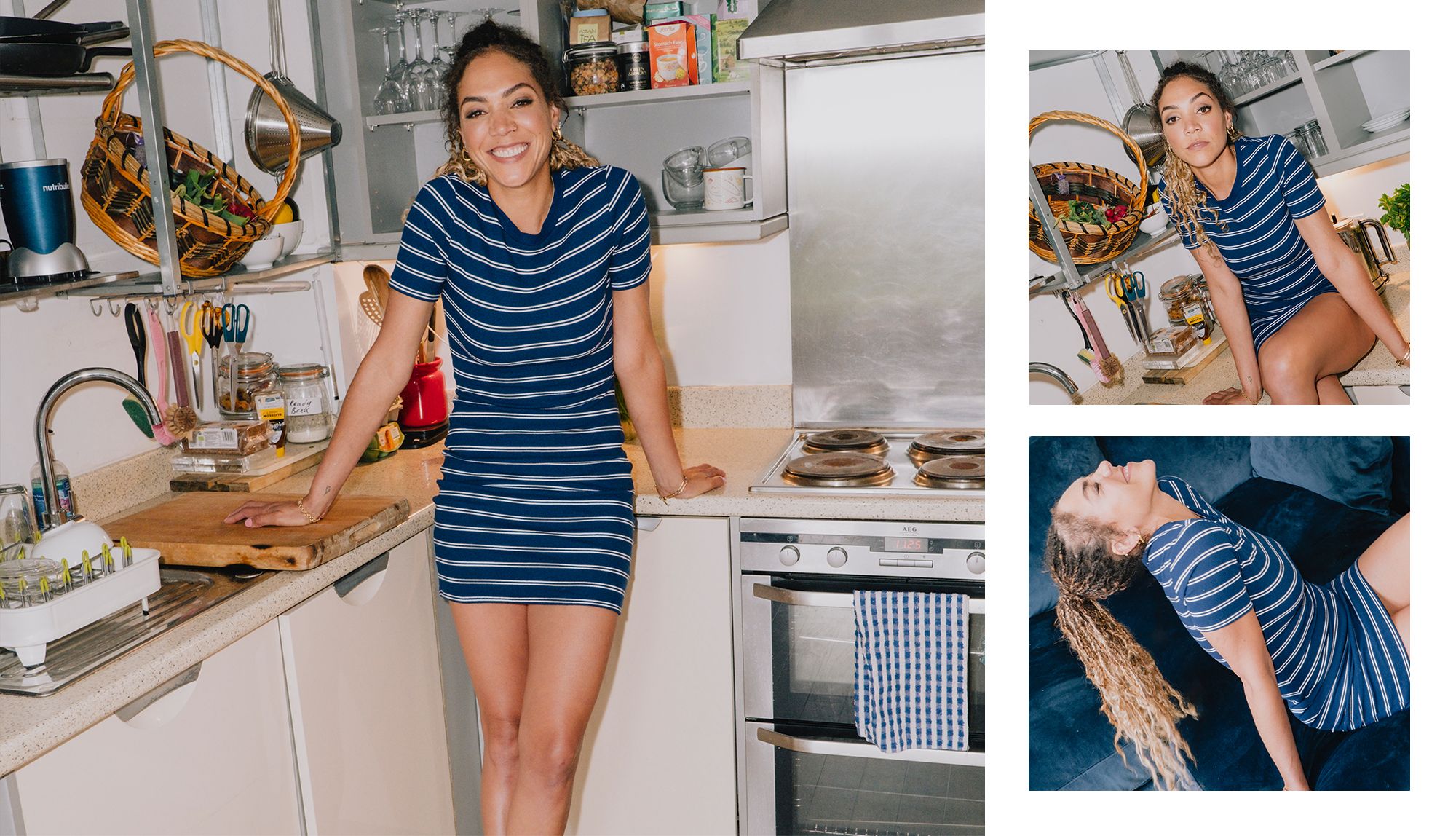
And are there any pieces in your wardrobe that are the most sentimental to you?
A Christopher Kane dress I got from Dover Street Market—this particular season was so banging, and I was 24 and hosting T4 on the Beach, and I remember thinking, “I think I’m a grown-up,” and I just wasn’t. I went to work, and I did a great job, but I remember thinking that the dress and I did it. It really just reminds me of being young and being really busy and just trying to keep up. But now I feel very proud of that little girl who did so much. I gave myself a hard time for so long, and now I try to look back at all those moments and be really proud of them. I wish I’d kept some more Popworld things actually—even though it was 20 years ago, there’s this one miniskirt I still wear. My leather jackets have also been through a lot with me. I think anything that has travelled with you through so many lives. I’m like, “How have you stayed with me through all these things, and you’re still with me?”
Do you remember any purchases that were really big moments for you at the time?
I used to do this weird thing where I would buy my friends really expensive clothes, and I would only wear second-hand clothes. So I bought my best friend Phoebe a Chloé coat and Prada shoes. And then I would wear like £3 dresses. I don’t know what that was about. I just didn’t really spend money on my clothes. I always liked second-hand clothes, even then. But I think I remember probably my first pair of Manolos, and my friend Lily’s (Allen) mum is quite glamorous, and she always had Manolos and Pradas and posh shoe boxes. When I first got a pair, I was like, “It’s the box from Alison’s house!” The white box with the black writing. I felt grown-up. The experience of that box and how they’ve made me look after things. Like, if I travel, I put things in shoe bags. So the few expensive things I buy, I really look after them. But I also really look after my second-hand things, too.
Do you have any style icons?
My nanny. But I also really liked Bob Marley in the ’70s—I love his sportswear so much and his denim looks. Carolyn Bessette-Kennedy—she’s so chic and her tailoring is a big reference to me. I really like the way Lily-Rose Depp dresses. She has good casual day looks. And I think that Little Simz is pretty fucking great, and I love her energy, her vibe, her hair and makeup.
Do you find it hard to walk past charity shops without going in?
The other day, I was donating things, and my mum was like, “You have to leave without shopping!” And yeah, I got three things. But I think every charity shop for me is like Harrods, or at least like an Aladdin’s cave of delights. So I do just like to browse and chat to the people who work there and talk about the area and the people around. I just really like the atmosphere in a charity shop. It sparks me up, and I have to go, “What’s that there around the corner?” I’m starting to get into shopping second-hand online because my stylist Charlotte is showing me the world of eBay, (I also love Vestiaire for shoes and handbags), but I will never love it quite as much as shopping in the real world.
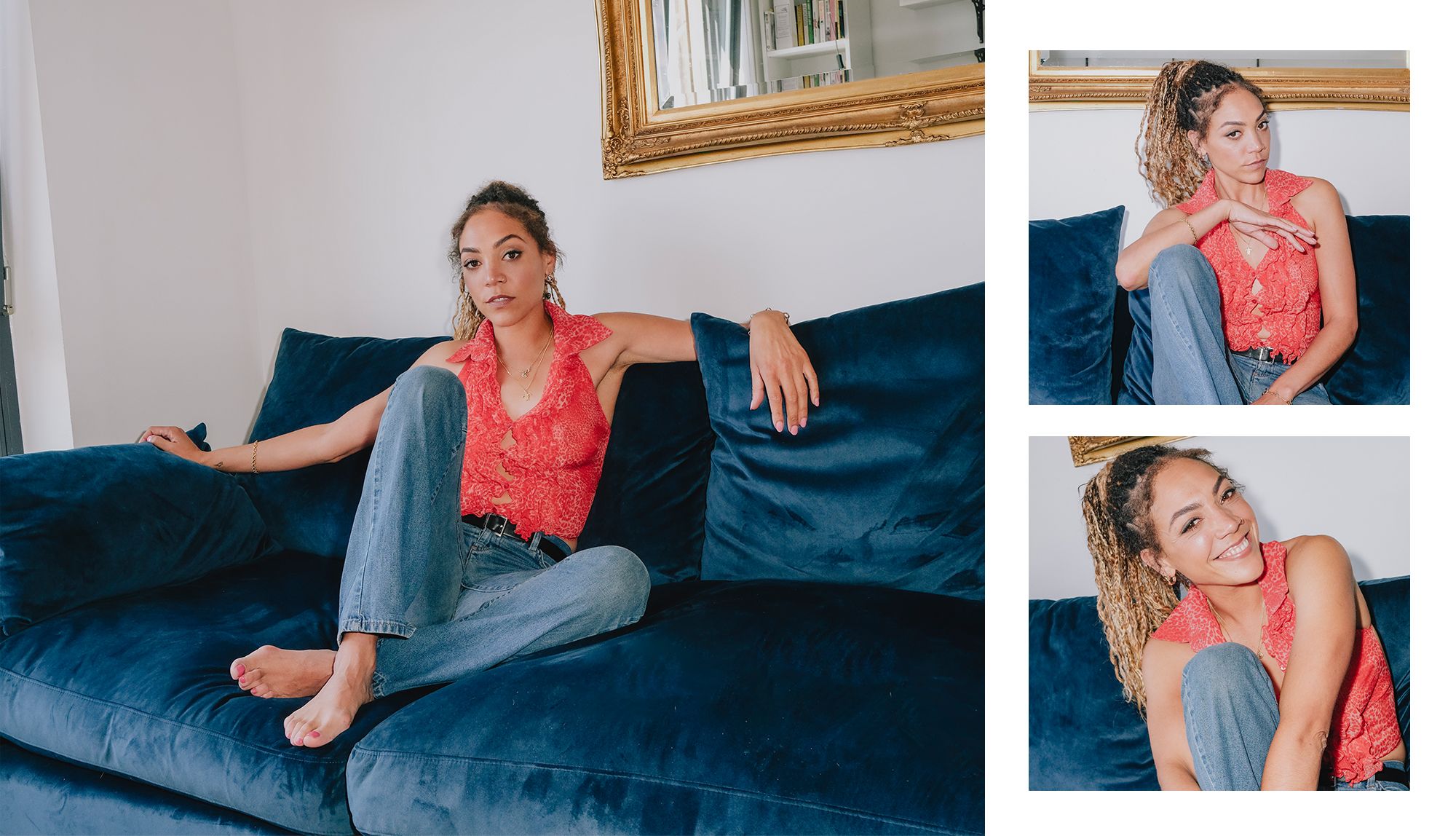
Thanks for having us, Miquita!
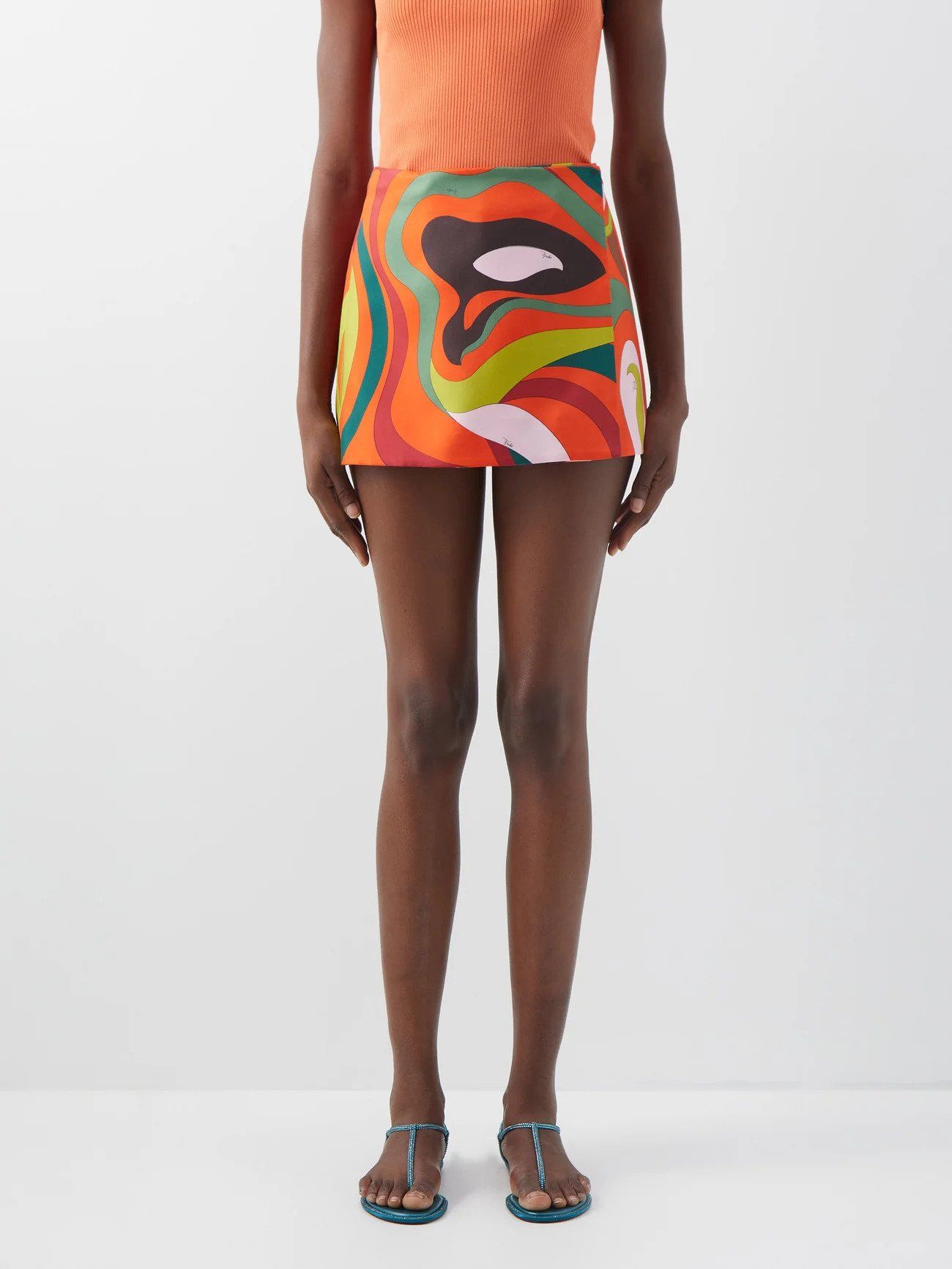
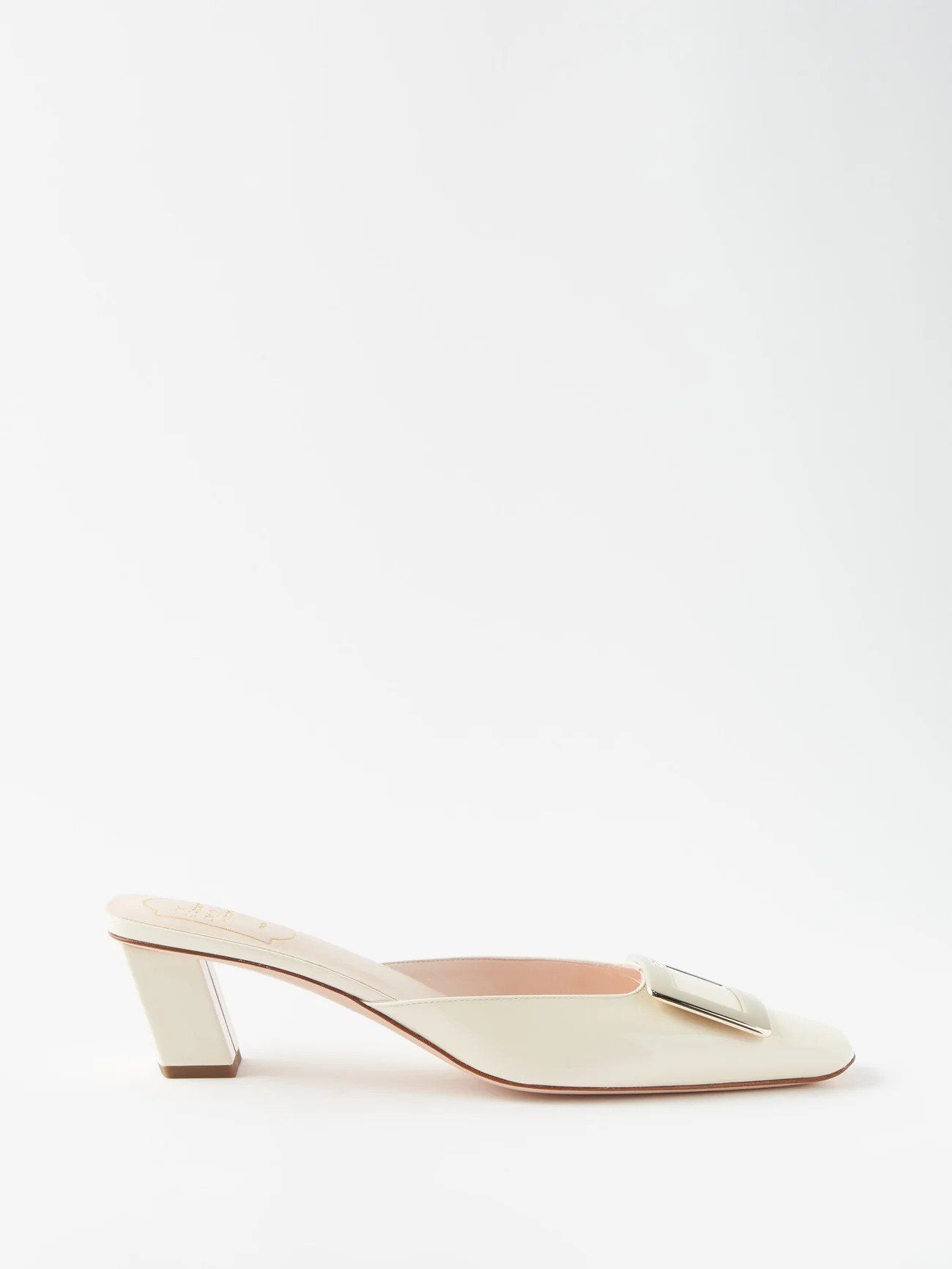
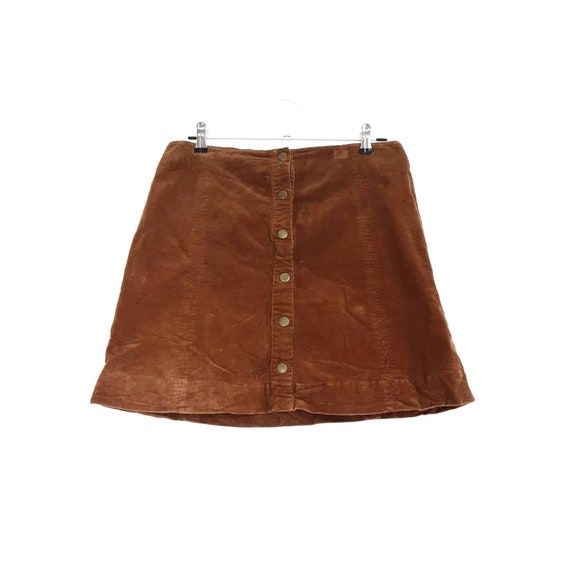
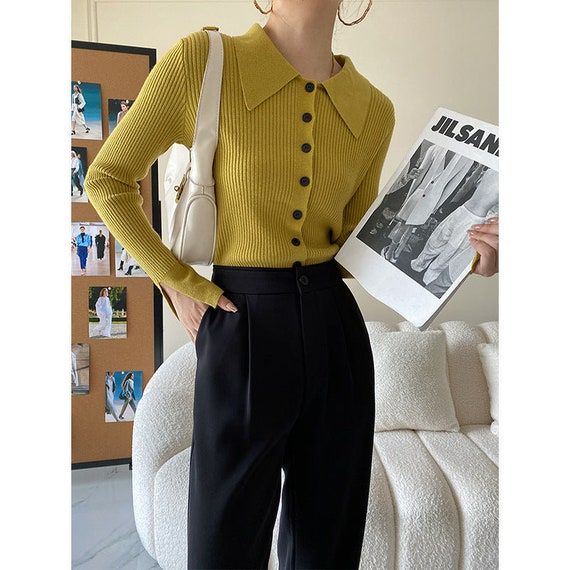
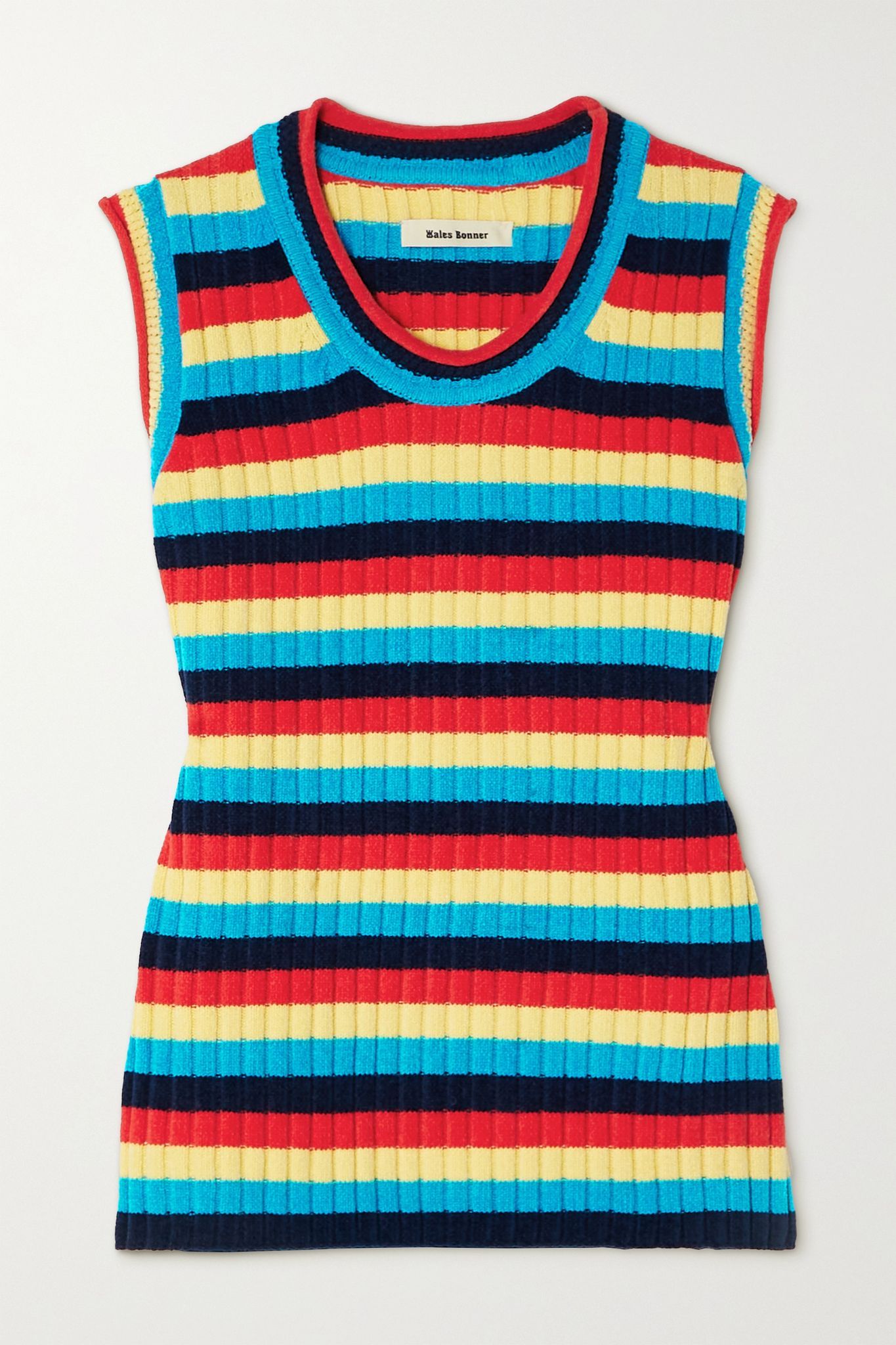
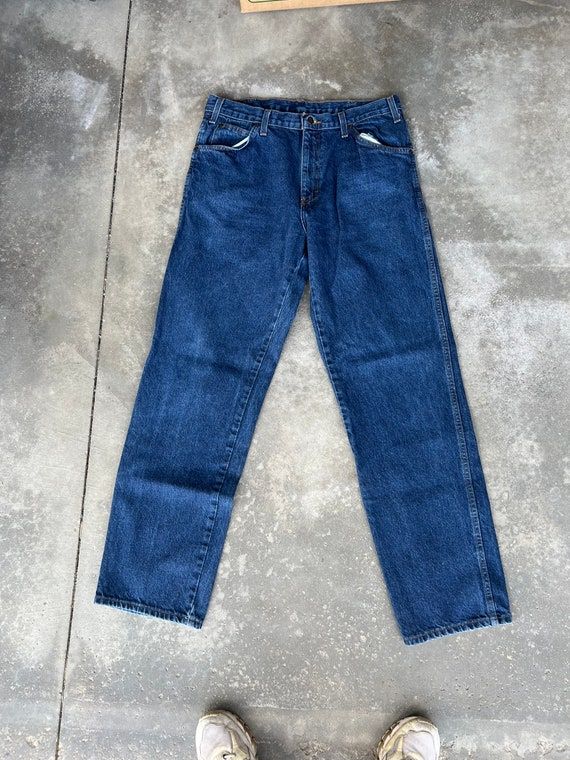
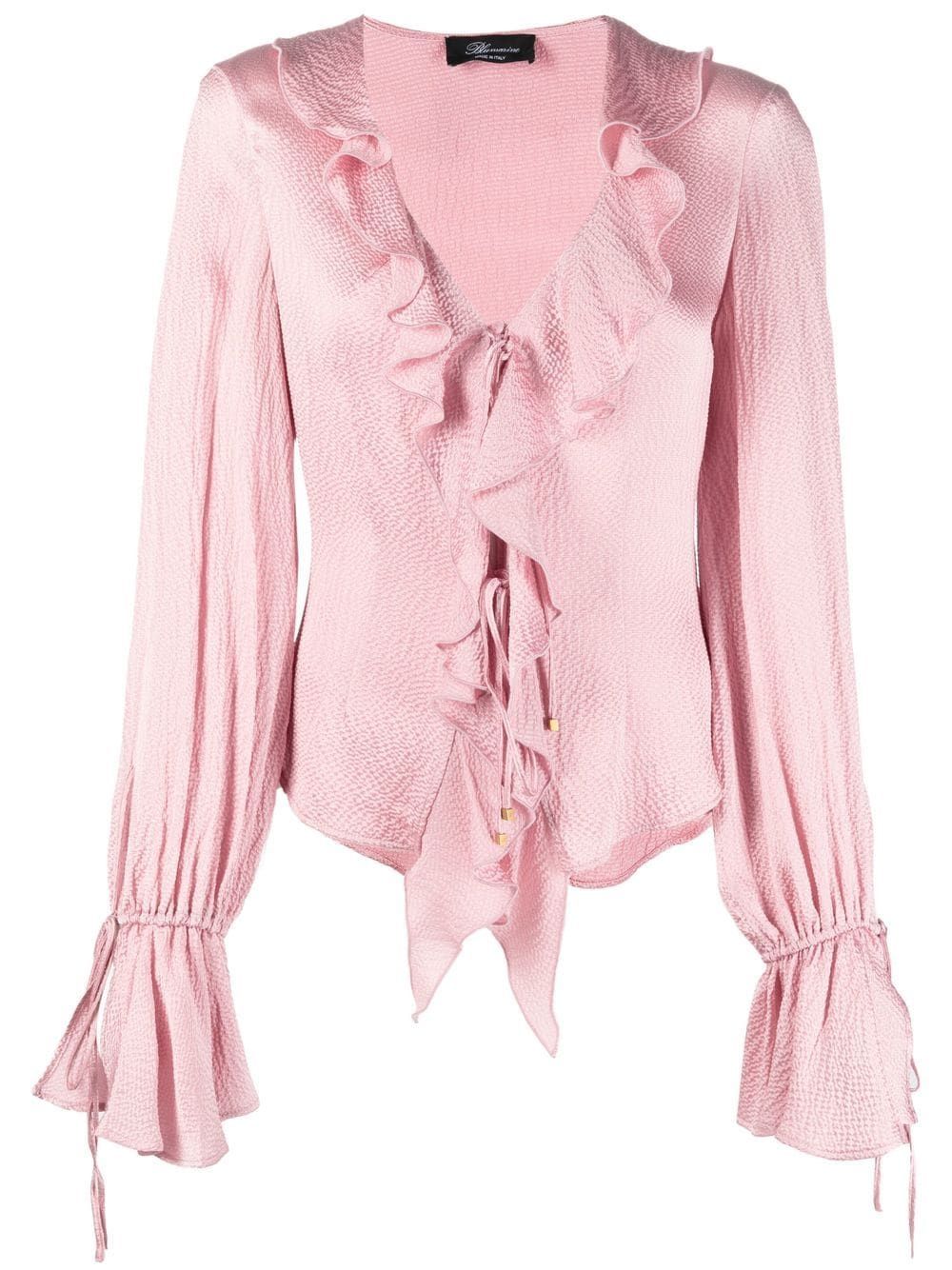
Up Next, 7 Trends London’s Coolest Dressers Are Wearing Right Now


